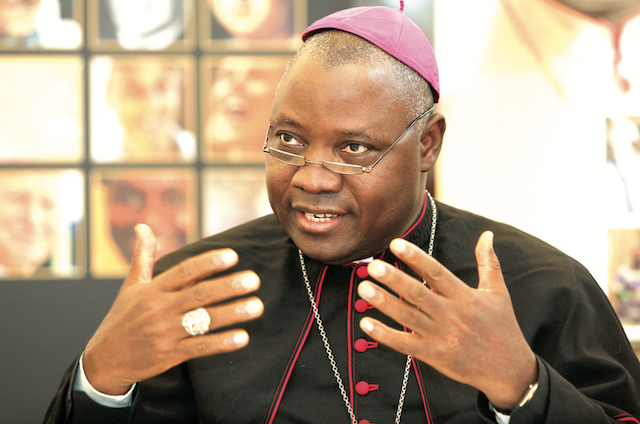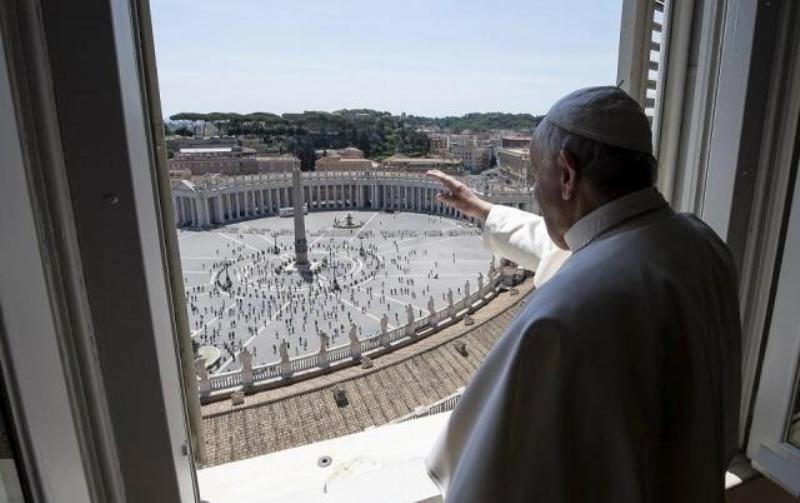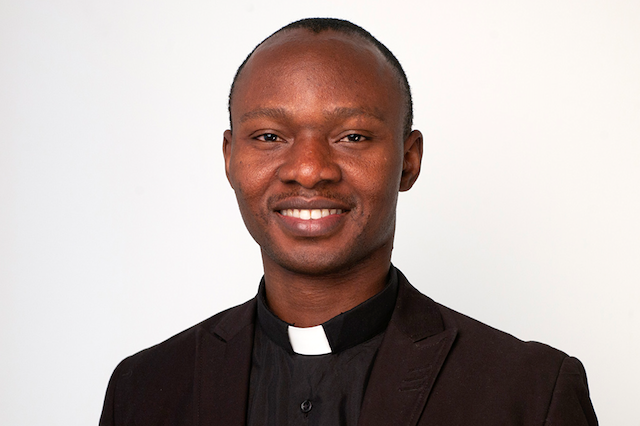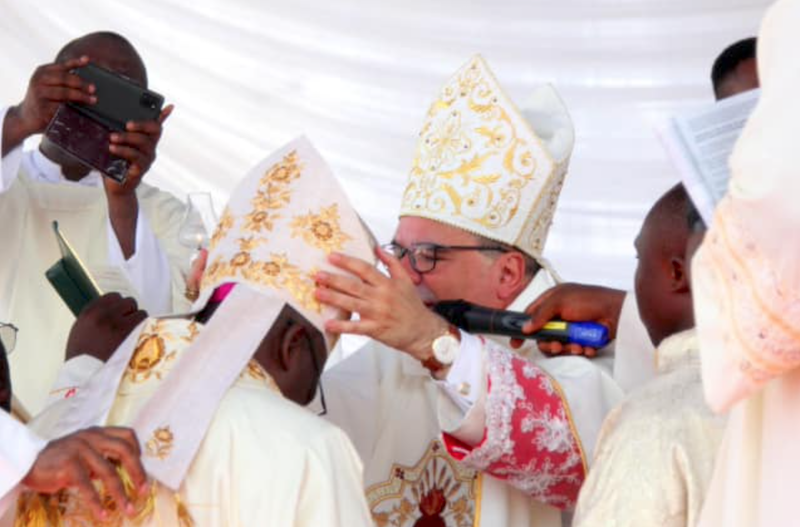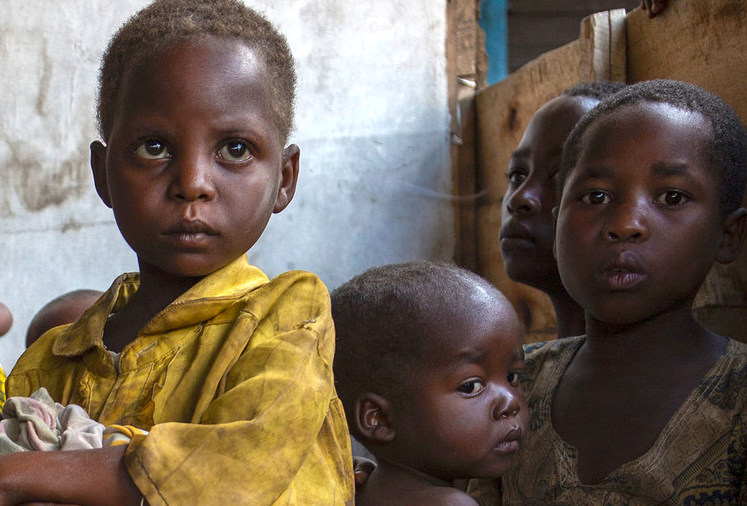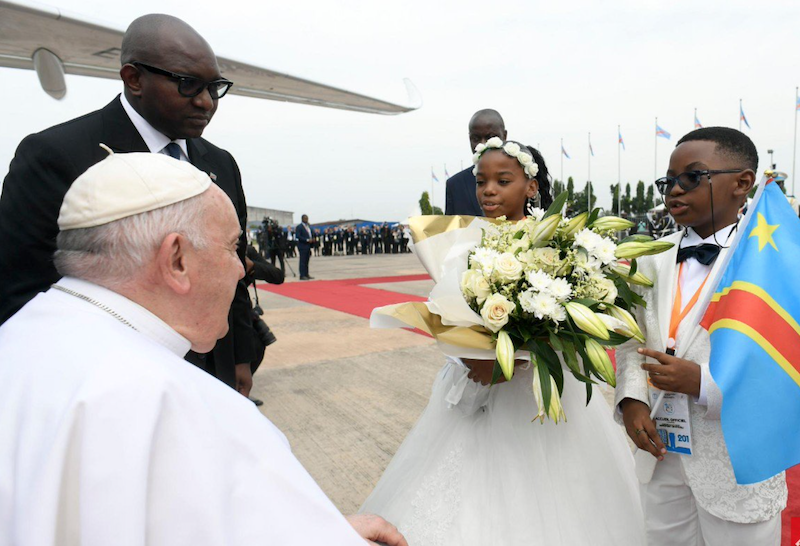By Fernando Ocáriz
On the tenth anniversary of Harambee, a social initiative for alleviating poverty and human misery, Bishop Javier Echevarría gave a conference on The Christian Heart, Motor of Social Development. In light of the social doctrine of the Church and the message of St. Josemaría, Bishop Javier reminded us that the dialogue between Jesus and a doctor of the Law expresses the inseparability of love for God and love for others: “when a doctor of the Law asked him which was the first commandment, the Lord did not limit himself to indicating that love of God is the first and greatest commandment. He included the need to love one’s neighbour in the first commandment (cf. Mt 22:35-39).”
It is important to keep the relational dimension of the person in mind. Benedict XVI, in the encyclical Caritas in veritate, affirms that, “as a spiritual being, the human creature is defined through interpersonal relations. The more authentically he or she lives these relations, the more his or her own personal identity matures.” This reality “requires a deeper critical evaluation of the category of relation” so that “man’s transcendent dignity [can be] properly understood.”
There are many professionals dedicated to caring for and dignifying people, especially the most in need. You know from experience that, although institutions and structures are necessary, to achieve true integral development we need encounters between persons, to create contexts and conditions within which development can take place, to give the person the opportunity to perfect him or herself in all his or her dimensions. As disciples of Jesus Christ, we are called by a new title — “Christian” — to care for people, to care for the world.
What do we see in the world? Together with new possibilities for human development due to advances in healthcare, technology, communications and so many inspiring examples, we see injustices and wounds from which humanity bleeds. “In today’s world, poverty presents many faces: sick and elderly people treated with indifference, the loneliness felt by many abandoned people, the drama of refugees, and the destitution in which a large part of mankind lives, often as a result of injustices that cry out to Heaven.”. As I said in 2017, “we cannot be indifferent to any of these things”; we are all called to exercise ‘the creativity of charity’ in order to bring the balm of God’s tenderness to all our brothers and sisters who are in need.”
When human beings ignore or neglect their condition as children of God, all their relationships are affected: with themselves, with others, and with creation. As Pope Francis has said, interdependence becomes dependence: “we lose this harmony of interdependence and solidarity.” We are jointly responsible for taking care of the world, establishing relationships founded in charity, justice, and respect, especially overcoming the disease of indifference. St. John Paul II wrote: “Yes, every man is his ‘brother’s keeper,’ because God entrusts us to one another.”. Some many social initiatives for assisting the poor began under St. Josemaría’s inspiration. And many people today, moved by the same inspiration, work in organisations of different types and focuses because you felt impelled to “do something,” not to sit still with your arms crossed.
It is at the heart of the spirit of Opus Dei to turn ordinary realities into a place of encounter with God and service to others; it is the aspiration of mature people, professionally competent and sensitive to others, seeking to make the world a more just and fraternal place. “Passionately loving the world” means knowing it, caring for it, and serving it.
St. Josemaría summarised the approach to social needs in a letter published in the 1950s: “Christians cannot be individualists who forget about the needs of others. Nor can Christians live selfishly and turn their backs on the world; they are essentially social, responsible members of Christ’s Mystical Body.”
Hand in hand with the founder of Opus Dei, I will focus on four dimensions for assisting others: spiritual, professional, personal and collective. First, the spiritual dimension. It might seem utopian to think that we are capable of doing something to alleviate the suffering of humanity. However, we know that it is Jesus who bears the burden of human pain. The wounds in his side, on his hands, and on his feet are reminders of the wounds of the world. And Jesus has told us: “Whatever you did for one of these, you did for me.”. The path of identification with Christ transforms the human heart and opens it to charity. Union with the Lord, in the sacraments and in prayer, leads us to discover our neighbour and his needs and to pay less attention to ourselves. Charity changes our gaze. “The charity of Christ is not merely a benevolent sentiment for our neighbour; it is not limited to a penchant for philanthropy. Poured out in our soul by God, charity transforms from within our mind and will. It provides the supernatural foundation for friendship and the joy of doing what is right.” Some time ago, in a letter, I invited people to ask the Lord to enlarge our hearts, to give us a heart that fits Him “so that there enter into it all the needs, pains and sufferings of the men and women of our time, especially the weakest.” A prayerful heart, in the middle of the world, supports and accompanies others in their needs.
Identification with Jesus opens us to others’ needs. At the same time, contact with those in need leads us to Jesus. For this reason, St. Josemaría wrote: “A friend of ours used to say: ‘The poor are my best spiritual book and the main motive of my prayers. It pains me to see them, and in each one of them, Christ. And because it hurts, I realise I love him and love them.’”. Jesus had a predilection for the poor and suffering, but he also wanted to suffer need and to be a victim himself. In the suffering, we glimpse Jesus who speaks to us, as Pope Francis reminded us: “The poor, always and everywhere, evangelise us, because they enable us to discover in new ways the true face of the Father.” From the time of the early Church, it has been understood that the Gospel message is based on concern for the poor and that it is a recognizable sign of Christian identity and an element in its credibility.
Second: professional dimension. We wish to place Christ at the heart of all human activities, sanctifying professional work and the Christian’s ordinary duties. This mission is carried out in the street, in society, especially through work. St. Josemaría reminds us of “the value of their ordinary work, which can be a highly effective means of loving and serving God and others, be it brilliant or lowly from a human point of view.” And he invites everyone “to work in the way they personally see fit to eliminate intolerance and to make society more just.”
For those who wish to follow Christ, all work is an opportunity to serve others, especially the most in need. There are professions in which this social impact is more immediate or evident, as in your case, working in organisations focused on improving the living conditions of disadvantaged people or groups. But this dimension of service is not just for some; it must be present in any honest work. From the time when St. Josemaría began to spread his message, he used to say that, to sanctify the world, it was not necessary to change one’s place, profession, or environment. It is a matter of changing oneself, whatever the place.
Charity and justice converge in the Christian ideal of work. Far from the logic of “success,” service to others is the best criterion for a Christian’s work performance. Satisfying the demands of justice in professional work is a lofty and ambitious goal; fulfilling one’s own obligations is not always easy, and charity always goes further, asking each person to generously go out of him or herself for others.
In the parable of the Good Samaritan, the innkeeper remains in the background: all we are told is that he acted professionally. His conduct reminds us that the exercise of any professional task gives us an opportunity to serve those in need. At times, the temptation to “take refuge in work” could appear, in the sense of not discovering work’s transformative social dimension, conforming ourselves to a false spiritualism. Sanctified work is always a lever for the transformation of the world, and the usual means by which the changes that dignify people’s lives are brought about, so that charity and justice truly permeate all relationships. The work thus accomplished will be able to contribute to purifying the structures of sin, making them into structures within which integral human development is really possible.
Faith helps us to conserve our confidence in the future. As St. Josemaría assured us, “our apostolic work will contribute to peace, to the collaboration of people with each other, to justice, to avoiding war, to avoiding isolation, to avoiding both national and personal selfishness. It will do so because everyone will realize that they are part of the whole great human family, which is directed by God’s will towards perfection. In this way we will help remove the all too common anxiety and fear of a future marked by fratricidal resentments. In addition, we will strengthen in souls and in society peace and harmony: tolerance, understanding, mutual relations, love.”
Third: the personal dimension. The message of Opus Dei urges us to strive for the transformation of the world through work. This also includes having compassion, like the Samaritan, as a requirement of love, which brings the law (“what is required”) to its fullness. Love makes our freedom ever more willing and ready to do good. St. Josemaría wrote, in a letter dated 1942: “The generalization of social remedies for the plagues of suffering or destitution — which make it possible to achieve humanitarian results today that could not have been dreamed of in other times — will never be able to supplant the efficacious tenderness, both human and supernatural, of immediate, personal contact with our neighbour; with this poor person in a neighbourhood nearby, with this sick person living in pain in an immense hospital […].”. We have before us a vast panorama in the family and in society, and a person with a large heart will try earnestly to care for his elderly parents, to give alms, to take an interest in his neighbours’ problems, to pray for a friend overwhelmed with worry, to visit a sick relative in the hospital or at home, to stop and talk to a person he sees regularly who is living on the street, to listen patiently, etcetera, etcetera.
It is not normally a matter of adding new tasks to the ones we already perform; it is rather a matter of trying to manifest, from our own identity, Christ’s love for others. The question of charity is not only about what I have to do but, first, who I am for the other and who the other is for me.
In this daily cultivation of solidarity, we find ourselves with others, and so others’ needs also become a place of encounter between people of good will, Christians or non-Christians alike, united before situations of poverty and injustice. This dialogue with necessity and vulnerability will surely bear fruit in greater sensitivity and a life of prayer close to the reality around us. We will be prepared to make decisions of greater personal austerity, avoiding consumerism, the lure of novelty, luxury… and we will know how to renounce unnecessary goods that, in our professional situation, we could perhaps afford. We will thus be receptive to personal change, to opening our ears to the Holy Spirit and listening to what he tells us through poverty.
Christ’s relationship with those in need is one-on-one. Certainly, collective works are necessary, but charity is personal because our relationship with God is personal. In a mature Christian, the unfolding of the works of mercy lived personally happens organically, like a tree that, as it grows, bears more fruit and shade. From this perspective, one can also perceive the complementarity that exists between the various manifestations of the personal apostolate and generosity with the needy.
St. Josemaría described the social transcendence of personal charity in the middle of the world, referring to the example of the faithful of the early Church. “This is how the first Christians acted. They did not have, due to their supernatural vocation, social or human programs to complete; but they were imbued with a spirit, a conception of life and of the world, that could not fail to have consequences in the society in which they lived.”
Fourth: the collective dimension: I do not want to stop expressing gratitude for the good you do through the initiatives inspired by St. Josemaría, and for those of you who, also inspired by him, work in different organisations that provide direct service to those most in need. I think of that young priest taking care of the poor and the sick in Madrid in the 1930s. The “stone fallen into the lake” has come a long way. Although we are aware of our limitations, we thank God and ask for his help to improve and continue. Collective works keep Christian social sensitivity alive and are a civil and public expression of mercy. As the Compendium of the Social Doctrine of the Church says, “in so many aspects the neighbour to be loved is found ‘in society’” and “to love him on the social level means, depending on the situations, to make use of social mediations to improve his life or to remove social factors that cause his indigence. It is undoubtedly an act of love, the work of mercy by which one responds here and now to a real and impelling need of one’s neighbour, but it is an equally indispensable act of love to strive to organize and structure society so that one’s neighbour will not find himself in poverty, above all when this becomes a situation within which an immense number of people and entire populations must struggle, and when it takes on the proportions of a true worldwide social issue.”
I would like to conclude with more powerful and stimulating words from St. Josemaría: “A man or a society that does not react to suffering and injustice and makes no effort to alleviate them is still distant from the love of Christ’s heart. While Christians enjoy the fullest freedom in finding and applying various solutions to these problems, they should be united in having one and the same desire to serve mankind. Otherwise their Christianity will not be the word and life of Jesus; it will be a fraud, a deception of God and man”.
Monsignor Ocáriz is the Prelate of Opus Dei, an institution of the Catholic Church
